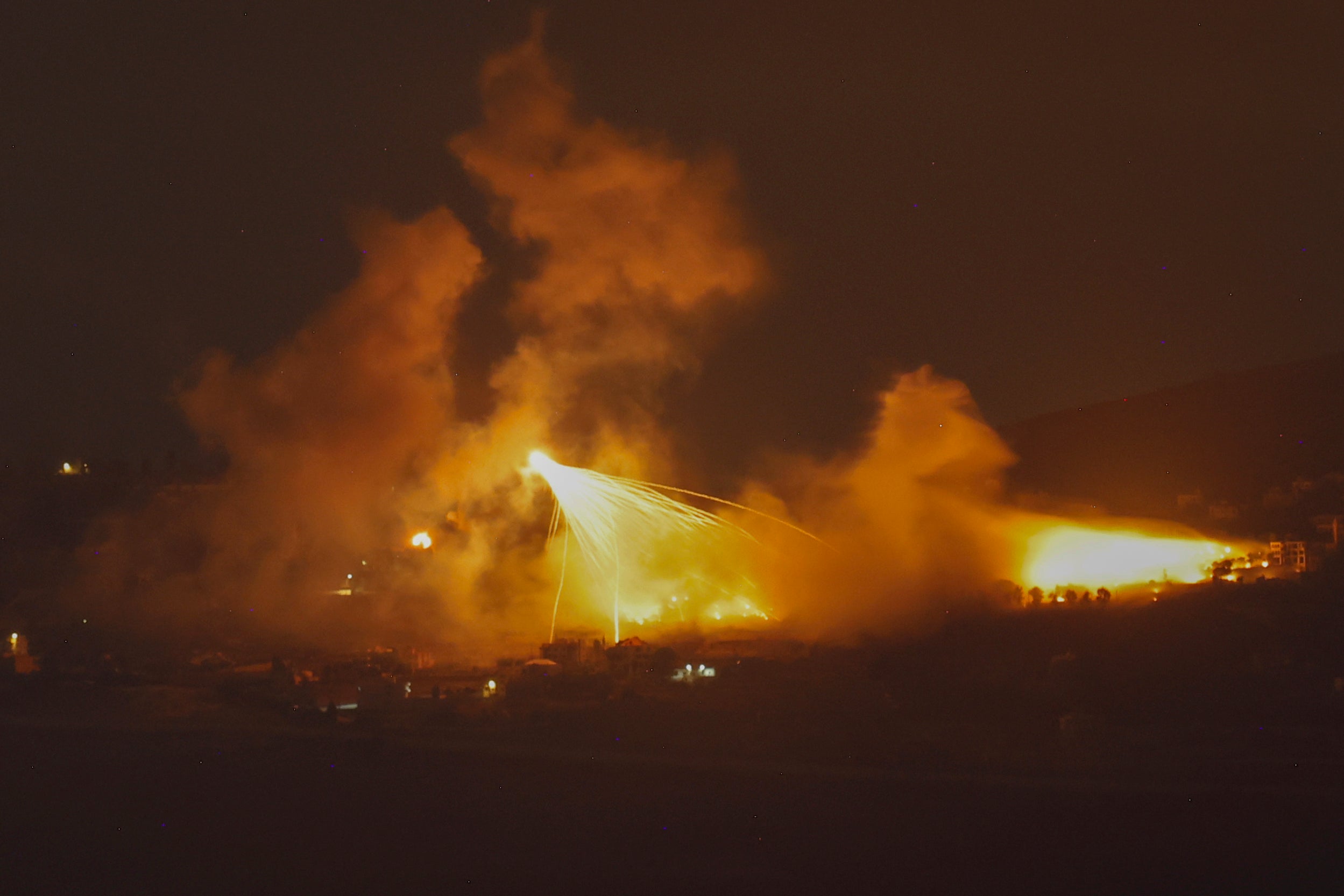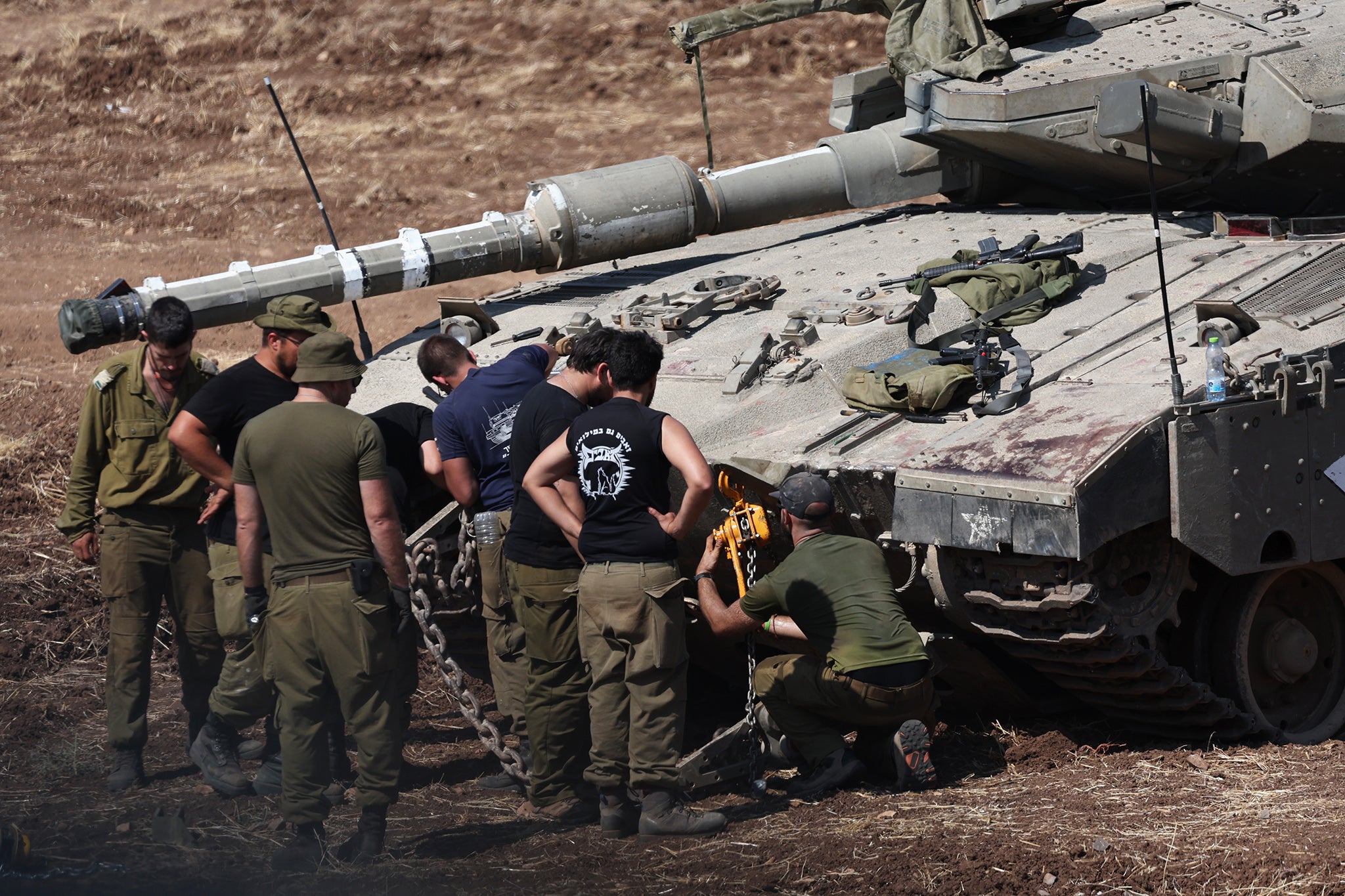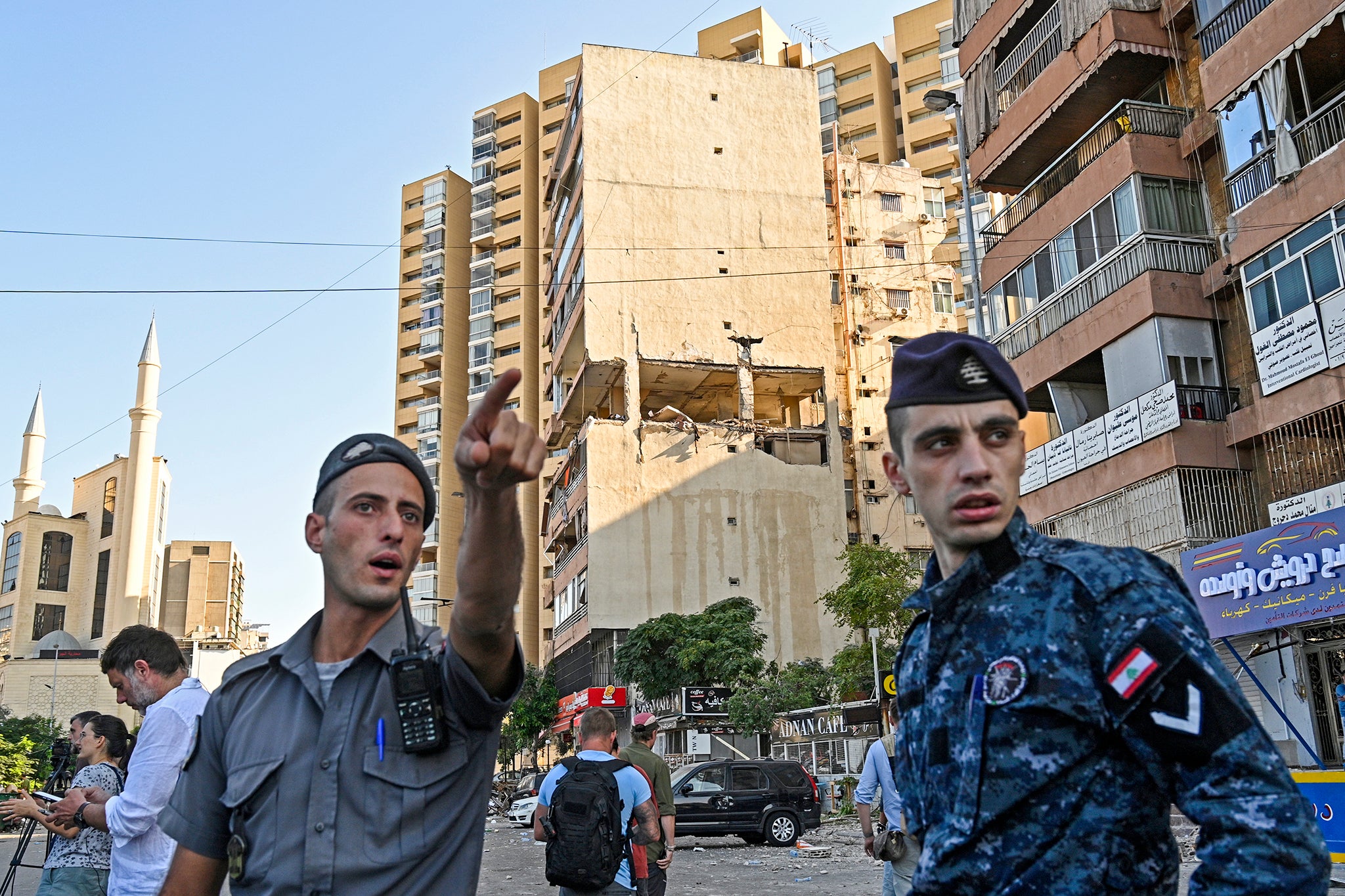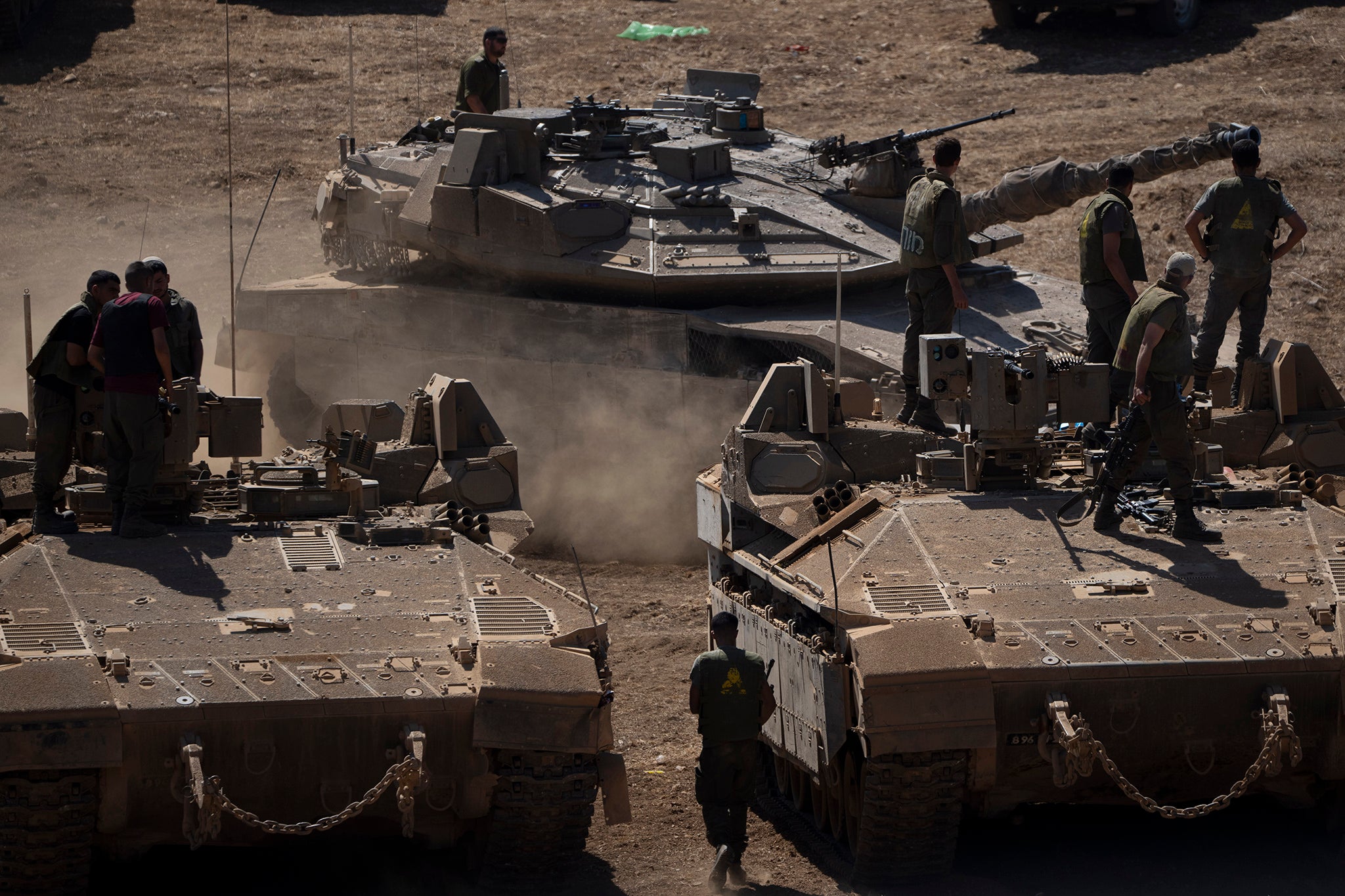Israel’s ground operation in Lebanon begins with ‘targeted’ raids on Hezbollah targets
The Israel Defense Forces released a statement confirming that ground operations have started after political approval

Your support helps us to tell the story
From reproductive rights to climate change to Big Tech, The Independent is on the ground when the story is developing. Whether it's investigating the financials of Elon Musk's pro-Trump PAC or producing our latest documentary, 'The A Word', which shines a light on the American women fighting for reproductive rights, we know how important it is to parse out the facts from the messaging.
At such a critical moment in US history, we need reporters on the ground. Your donation allows us to keep sending journalists to speak to both sides of the story.
The Independent is trusted by Americans across the entire political spectrum. And unlike many other quality news outlets, we choose not to lock Americans out of our reporting and analysis with paywalls. We believe quality journalism should be available to everyone, paid for by those who can afford it.
Your support makes all the difference.Israel’s widely-expected ground incursion inside Lebanon is underway with its military claiming troops have carried out “targeted” raids across the border while backed by airstrikes and artillery.
In a statement issued on Tuesday morning, Israel Defense Forces (IDF) said it was striking Hezbollah targets in areas close to its country’s northern border.
The announcement came shortly after Israeli media reported that the country’s cabinet had approved the next stage of the military operation targeting the militant group.
Pictures also emerged of dozens of Israeli tanks and armoured vehicles at the border with Lebanon while airstrikes intensified in southern Beirut after the IDF ordered an evacuation of three areas.
UK foreign secretary David Lammy described the situation as “volatile” as a charter flight was ordered to evacuate Britons out of the country.
Mr Lammy had joined US president Joe Biden in repeating calls for an immediate ceasefire amid fears of an escalation in the conflict.
But just after midnight on Tuesday morning, and following reports of heavy shelling on border towns, the IDF confirmed that a ground operation had started.
It said: “In accordance with the decision of the political echelon, a few hours ago, the IDF began limited, localised, and targeted ground raids based on precise intelligence against Hezbollah terrorist targets and infrastructure in southern Lebanon.
“These targets are located in villages close to the border and pose an immediate threat to Israeli communities in northern Israel. The IDF is operating according to a methodical plan set out by the General Staff and the Northern Command which IDF soldiers have trained and prepared for in recent months.
“The Israeli Air Force and IDF Artillery are supporting the ground forces with precise strikes on military targets in the area.”

Yesterday, Israeli prime minister Benjamin Netanyahu warned: “There is nowhere in the Middle East Israel cannot reach.”
The Israeli military yesterday also declared three communities along Israel’s northern border to be a “closed military zone,” in a precursor to the ground operation on the Lebanon.
It came as Israel’s defence minister Yoav Gallant told troops on the border with Lebanon that they should be ready to attack “from the air, from the sea and from the land” as they look to stop Iran-backed Hezbollah from continuing to fire into its northern territories.
“Nasrallah’s elimination is an important step but it is not the end,” he told Israel’s 188th brigade. “To return the residents of the north safely to their homes we will activate all our capabilities - including you.
“That is what we will do, and we will deploy whatever is needed – you, other forces, from the air, from the sea, and from the land.”
He added in a message on X, formerly Twitter, that Israel’s forces are “ready and prepared to strike Hezbollah with force”.

Fears of an Israeli invasion of Lebanon – Hezbollah forces currently control the southern half of the country, from where they have been continuously firing into northern Israel – have grown since Israel launched a massive bombing campaign across the Middle East a fortnight ago.
More than 1,000 people in Lebanon have been killed since, including dozens of senior Hezbollah personnel. Women and children are also among the dead, according to the Lebanese health ministry, a separate authority in the country.
While Israeli forces, including the 188th brigade, are waiting in the northern territories for any orders to invade, units of special forces have already started carrying out raids into southern Lebanon. These missions have been going on for months, mainly involving small attacks in Hezbollah tunnels just across the border, but former senior military officials say these preliminary operations may well presage an all-out invasion.
On Monday morning, Israel bombed a residential building in the Cola area of Beirut. In its first strike beyond the southern suburbs of the capital, it killed four people, including three members of the Popular Front for the Liberation of Palestine (PFLP) group.
Most of the apartments of the 10-story building were heavily damaged. With three of its four walls destroyed, the fifth floor that was targeted was left completely exposed. On the street lie ruins and what’s left of furniture and personal belongings from the damaged apartments.
“Yes we were here, we saw everything this morning,” says Mahmoud Kalaf Salam, a Syrian drinking coffee with some other men on the opposite side of the viaduct the targeted building faces.
“After the explosions, we saw rubble everywhere, there was fire, people wounded with shrapnel and debris all over their bodies. Everyone ran outside to see what happened.”

In the neighbourhood of Hamra, the streets were filled with people and cars, many having fled the southern parts of the country or the capital itself amidst heavy Israeli bombardments since last week.
On Monday afternoon, an Israeli surveillance drone could be heard loudly above the neighbourhood. Many pedestrians stopped for a moment to look up to the sky, searching and occasionally spotting the little white plane.
Mr Gallant says the attacks are key to returning the 60,000 Israeli residents in the northern territories who have been displaced by Hezbollah’s aerial assaults over the past 11 months. Israel recently added the return of those citizens to its core war aims.
In his first public address since Israeli strikes killed Nasrallah in Beirut on Friday, Hezbollah’s deputy chief Naim Qassem said the group was “ready” to fight against any possible invasion.
“We will face any possibility and we are ready if the Israelis decide to enter by land and the resistance forces are ready for a ground engagement,” he said in an address from an undisclosed location, adding that Hezbollah would emerge victorious.

The Iranian foreign ministry added that Israel’s “criminal acts” would not go unanswered.
Since Hamas launched its incursion into Israel on 7 October last year, killing 1,000 people and taking 251 hostage, Hezbollah and other Iran-backed groups have been attacking Israel, they say, in solidarity with those in Gaza. At least 41,500 people have been killed in the enclave since Israel launched its retaliatory ground and aerial offensive.
Hours before Qassem spoke, Hamas said an Israeli airstrike killed its leader in Lebanon, Fateh Sherif Abu el-Amin, along with his wife, son and daughter in the southern city of Tyre on Monday.
The PFLP said three of its leaders died in a strike in Beirut’s Kola district – the first such hit inside the city limits since 2006, when Israel last invaded Lebanon.
The wave of Israeli attacks on militant targets in Lebanon are part of a conflict also stretching from the Palestinian territories of Gaza and the occupied West Bank, to Yemen, Iraq, Syria and within Israel itself. The escalation has raised fears that the United States and Iran will be sucked into the conflict.
Join our commenting forum
Join thought-provoking conversations, follow other Independent readers and see their replies
Comments